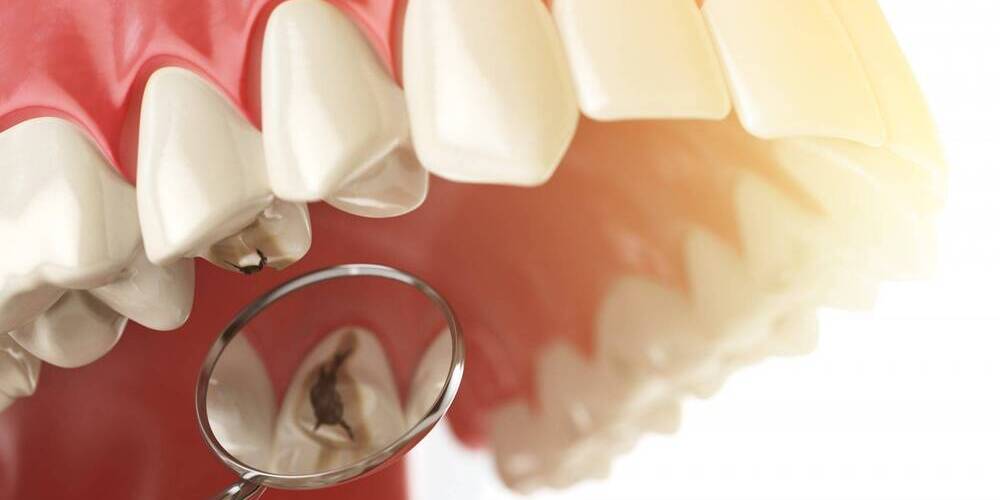
Can a Root Canal Get Infected Again? Understanding the Risks
Can a Root Canal Get Infected Again?
Dispelling the Myth of Permanent Immunity
A common misconception is that once a tooth has undergone root canal treatment, it becomes immune to future infections. This isn’t entirely accurate. While root canals are highly effective at treating infected or inflamed tooth pulp, they don’t provide a permanent shield against reinfection.
Exploring the Likelihood of a Root Canal Becoming Infected Again
Recurrent infection risk exists even for teeth that have been treated with a root canal. Various factors can contribute to this:
- Incomplete Cleaning: If any bacteria remain in the root canal system during the initial treatment, they can cause reinfection.
- New Decay: The treated tooth can still develop new cavities around the edges of the restoration.
- Structural Damage: A cracked or broken crown can expose the inner parts of the tooth to bacteria.
Regular dental check-ups and maintaining proper oral hygiene significantly reduce these risks. Understanding that a root canal isn’t a one-time fix, but rather part of ongoing dental care, helps manage expectations and promotes better long-term oral health. This is especially true when seeking treatment at renowned clinics such as FineUp Clinic in Turkey, which specialize in providing exceptional care and services to citizens from around the world.”.
Signs and Symptoms of Reinfection in a Treated Root Canal
Detecting infection in a root canal early is crucial to prevent complications. Here are some common indications that a root canal may be infected again:
- Persistent Pain: Continuous or throbbing pain in the treated tooth area, even after the initial discomfort should have subsided.
- Swelling and Tenderness: Noticeable swelling around the gums or face, coupled with tenderness when biting or touching the affected area.
- Discoloration: A darkening of the treated tooth, which could indicate underlying issues.
- Pus Discharge: Presence of pus-filled pockets or abscesses near the treated tooth, often accompanied by an unpleasant taste or odor in the mouth.
Being vigilant can help recognize the early symptoms of reinfection:
- Sensitivity to Temperature: Heightened sensitivity to hot or cold foods and drinks, signaling potential nerve issues.
- Bad Breath: Persistent bad breath that doesn’t improve with oral hygiene practices.
- Recurring Pimples on Gums: Small, recurring pimples or boils on the gums near the treated tooth.
Early detection is essential for successful intervention. If these signs appear, consult your dentist promptly to address potential complications.
Understanding the Causes of Root Canal Reinfection

Bacteria recontamination is a significant concern for patients who have undergone root canal treatment. There are several reasons why bacteria can re-enter the treated canal system, leading to reinfection.
How Bacteria Can Re-enter
- Improper Sealing: If the sealant used during the procedure is not applied correctly, bacteria can infiltrate through the gaps.
- Cracked or Damaged Tooth: A cracked or chipped tooth provides a pathway for bacteria to reach the inner canal again.
- Failed Restoration: Fillings and crowns may fail over time, especially if they are not maintained properly, allowing bacteria to penetrate.
Why Reinfection Occurs
- Residual Bacteria: Sometimes, tiny amounts of bacteria remain inside the canal even after meticulous cleaning and sealing. These bacteria can multiply and cause reinfection.
- New Decay: Decay around the edges of the filling or crown can create an opening for bacteria.
- Inadequate Oral Hygiene: Poor oral hygiene practices increase the risk of bacterial accumulation around treated teeth.
Understanding these causes helps in taking proactive steps towards preventing reinfection. Regular dental check-ups and maintaining good oral hygiene are crucial in safeguarding treated teeth from bacterial recontamination.
By addressing these points, patients can better understand how to protect their investment in root canal therapy and maintain optimal oral health.
Reducing the Risk: Prevention Strategies for Root Canal Infections
Preventing root canal reinfection starts with understanding and implementing effective strategies to maintain the health of your treated tooth. Here are key measures to safeguard your tooth from reinfection:
- Maintain Excellent Oral Hygiene: Brush twice daily with fluoride toothpaste and floss regularly to remove plaque and food particles. This reduces bacterial buildup that can lead to infection.
- Regular Dental Check-ups: Schedule biannual dental exams and cleanings. Professional cleanings help eliminate plaque in hard-to-reach areas, while examinations allow early detection of potential issues.
- Proper Restoration Care: If you have a crown or filling on your treated tooth, ensure it’s intact. Damage or wear can create spaces where bacteria can enter. Promptly address any signs of wear or damage.
- Use Antibacterial Mouthwash: Incorporate an antibacterial mouthwash into your daily routine. This helps reduce the overall bacterial load in your mouth, offering an additional layer of protection.
- Avoid Hard Foods: Be cautious with hard foods like nuts and ice that can crack or damage your restoration, making it easier for bacteria to infiltrate.
- Manage Bruxism (Teeth Grinding): If you grind your teeth, use a night guard as recommended by your dentist. Grinding can weaken restorations and increase the risk of reinfection.
- Healthy Diet: Consume a balanced diet rich in vitamins and minerals to support overall oral health. Limit sugary snacks and drinks that contribute to tooth decay.
Employing these strategies significantly lowers the risk of reinfection, ensuring the longevity of your root canal treatment and maintaining optimal oral health.
The Importance of Good Oral Hygiene for Keeping Your Root Canal Healthy
Taking good care of your teeth and gums is essential to ensure that a root canal treatment lasts a long time. Here are some effective yet gentle ways to maintain oral hygiene:
Brushing Techniques
- Choose a Soft-Bristled Toothbrush: Using a toothbrush with soft bristles helps prevent gum damage and protects the treated tooth.
- Brush Twice a Day: Make sure to brush your teeth at least twice daily, paying attention to every surface, including around dental restorations.
- Use Toothpaste with Fluoride: Fluoride strengthens your tooth enamel and adds an extra layer of defense against bacteria.
Flossing Methods
- Floss Daily: Take the time to floss once a day to remove plaque and food particles that can become stuck between your teeth.
- Be Gentle: When flossing around the treated tooth, use a gentle back-and-forth motion to avoid harming the gum tissue.
Additional Tips for Oral Care
- Use Antibacterial Mouthwash: Rinse your mouth with an antibacterial mouthwash to help reduce the amount of bacteria present, lowering the risk of reinfection.
- See Your Dentist Regularly: Make it a habit to visit your dentist for professional cleanings and check-ups. This way, any potential problems can be identified early on.
By following these proper oral hygiene practices, you can greatly minimize the chances of reinfection and maintain the health of your treated tooth.
How to Protect a Treated Tooth and Avoid Injury
After getting a root canal treatment, it’s important to take steps to protect your tooth and prevent any further damage. Here are some practical tips to help you safeguard your dental investment:
Tips to Prevent Accidents that Could Compromise a Root Canal
- Wear a Mouthguard: If you participate in contact sports or activities with a risk of injury, always wear a mouthguard. This simple device can absorb shock and protect your teeth from impact.
- Avoid Using Teeth as Tools: Refrain from using your teeth to open packages, bottles, or other objects. Such actions can exert undue pressure on your treated tooth, leading to cracks or fractures.
- Be Mindful of Hard Foods: Avoid chewing on hard foods like ice, nuts, or hard candies. These can put excessive strain on your root canal-treated tooth, increasing the risk of damage.
- Address Bruxism (Teeth Grinding): If you grind your teeth at night, consider using a nightguard. Bruxism can cause significant wear and tear on all teeth, including those treated with a root canal.
- Regular Dental Check-ups: Routine visits to your dentist allow for early detection of potential issues that could compromise your treated tooth. Your dentist can provide personalized advice based on the condition of your teeth.
Following these prevention strategies helps protect the integrity of your root canal-treated tooth, ensuring it remains strong and functional for years to come.
Seeking Timely Dental Care for Early Intervention in Case of Reinfection
Regular dental check-ups are essential to maintaining the health of a treated tooth. Consistent dental monitoring after a root canal helps detect any signs of reinfection early on. This proactive approach ensures that any potential issues are addressed promptly, preventing complications.
Importance of Regular Examinations and X-rays
1. Routine Examinations
Visiting your dentist biannually allows for thorough inspections of both treated and untreated teeth. Dentists can identify minor problems before they escalate.
2. X-rays
Periodic X-rays provide a detailed view inside the tooth and surrounding bone structure. These images reveal hidden infections or abnormalities that aren’t visible during routine examinations.
Dentists use these tools to ensure the treated tooth remains infection-free. Regular visits also offer an opportunity to reassess your oral hygiene practices, ensuring they are as effective as possible.
Benefits of Regular Check-Ups for Treated Teeth
1. Early Detection
Identifying issues early means less invasive treatments and better outcomes.
2. Preventive Care
Dentists can recommend preventive measures tailored to your specific needs, reducing the risk of reinfection.
3. Peace of Mind
Knowing your treated tooth is regularly monitored provides reassurance and confidence in your oral health.
Incorporating regular dental visits into your routine is a simple yet powerful way to safeguard the longevity of your root canal-treated tooth.
Professional Expertise: Ensuring Quality Treatment to Minimize the Risk of Reinfection
Choosing a skilled and knowledgeable endodontist for your root canal procedure is crucial. A high-quality root canal therapy significantly reduces the risk of reinfection. Here’s what to consider:
1. Experience Matters
An experienced endodontist has encountered a variety of complex cases, which equips them with the skills needed to handle any potential complications during your procedure.
2. Advanced Techniques and Equipment
Modern endodontics involves the use of sophisticated tools such as digital radiography and operating microscopes. These instruments allow for precise diagnosis and treatment, ensuring thorough cleaning and sealing of the canal system.
3. Continuing Education
Endodontists committed to their field keep abreast of the latest research and techniques. This continuous learning ensures they provide the most effective treatments available.
4. Patient-Centric Approach
A good endodontist listens to your concerns, explains procedures clearly, and tailors treatment plans to your specific needs, fostering a comfortable and reassuring environment.
Prioritizing quality root canal therapy from an experienced endodontist can make all the difference in maintaining the health of your treated tooth. The expertise and care provided by a professional ensure that every step is taken to prevent future infections.
Understanding The Risks of Root Canal Reinfection
Root canal reinfection is not common, but it can still happen. It’s important to know and understand the risks involved if you’ve had this procedure done.
How to Minimize the Risk of Root Canal Infections
There are several ways you can reduce the risk of root canal reinfection:
- Meticulous Oral Hygiene: Regularly brushing and flossing your teeth helps keep bacteria away.
- Routine Dental Check-ups: Visiting your dentist every six months allows for early detection and prompt treatment if any issues arise.
- Avoiding Hard Foods: By avoiding hard nuts and candies that can potentially damage the restored tooth, you can prevent trauma.
- Using a Mouthguard: If you grind or clench your teeth, especially during sleep, wearing a mouthguard can protect your treated teeth.
Common Symptoms of Root Canal Reinfection
Signs that your root canal may have become reinfected include:
- Persistent pain or discomfort
- Swelling and tenderness
- Sensitivity to pressure or temperature changes
The Importance of Choosing a Skilled Endodontist
Selecting a skilled endodontist (a dentist specializing in root canal treatments) is crucial because it directly affects the quality and success of your root canal therapy. With proper care from an experienced professional and proactive measures on your part, the chances of reinfection are significantly reduced.
By understanding these risks and following preventive strategies, you can effectively protect your dental health.
FAQs (Frequently Asked Questions)
Can a Root Canal Get Infected Again?
Yes, a root canal can get infected again. Although the success rate of root canal therapy is high, there is always a small risk of reinfection. This can happen due to various reasons such as inadequate removal of infected tissue during the initial treatment, complex root canal anatomy, or a new infection caused by poor oral hygiene. It’s important to be vigilant and seek prompt treatment if you experience any symptoms of reinfection.
What are the Signs and Symptoms of Reinfection in a Treated Root Canal?
Signs and symptoms of reinfection in a treated root canal may include persistent pain or discomfort, swelling and tenderness, sensitivity to pressure or temperature changes, and the presence of a recurring abscess or gum boil. If you notice any of these signs, it is crucial to consult with your endodontist as soon as possible for an evaluation and appropriate treatment.
What are the Causes of Root Canal Reinfection?
The causes of root canal reinfection can vary. As mentioned earlier, inadequate removal of infected tissue during the initial treatment can leave behind bacteria that can cause reinfection. Additionally, complex root canal anatomy, such as extra canals or curved roots, can make it challenging to completely clean and seal the tooth, increasing the risk of reinfection. Poor oral hygiene, including inadequate brushing and flossing, can introduce new bacteria into the root canal system and lead to reinfection. In some cases, a new infection may occur due to a cracked or leaking filling or crown, allowing bacteria to enter the tooth again.
How can I Reduce the Risk of Root Canal Infections?
Maintaining good oral hygiene is key to reducing the risk of root canal infections. This includes brushing your teeth at least twice a day, flossing daily, and using an antimicrobial mouthwash. Regular dental check-ups are also important, as they allow your dentist to identify any potential issues early on. If you have a history of root canal treatment, it’s especially crucial to follow up with regular check-ups and X-rays to monitor the health of the treated tooth. By taking these preventive measures, you can minimize the chances of reinfection and ensure the long-term success of your root canal treatment.
What is the Role of Proper Oral Hygiene in Maintaining Root Canal Health?
Proper oral hygiene plays a pivotal role in maintaining the health of a root canal-treated tooth. It helps to prevent the introduction of new bacteria into the treated tooth, reducing the risk of reinfection. Regular brushing and flossing remove plaque and debris from the teeth and gums, including any potential bacteria that could infiltrate the root canal system. Using an antimicrobial mouthwash can further aid in killing bacteria and maintaining oral hygiene. By prioritizing good oral care and attending regular dental check-ups, you can safeguard your root canal-treated tooth and promote its long-term health.
How can I Avoid Trauma and Injury to Preserve the Integrity of a Treated Tooth?
Avoiding trauma and injury is crucial in preserving the integrity of a root canal-treated tooth. This includes avoiding habits like biting on hard objects or using your teeth as tools. If you participate in high-impact activities or contact sports, wearing a mouthguard can provide an added layer of protection. In case of any accidents or injuries, seek dental attention promptly to assess the condition of the treated tooth and ensure timely intervention if needed.
Why is Seeking Timely Dental Care Important for Early Intervention in Case of Reinfection?
Seeking timely dental care is important for early intervention in case of reinfection for several reasons. Firstly, if a reinfection occurs, it can spread quickly and compromise the health of the tooth and surrounding tissues. Early detection allows for prompt treatment, minimizing the extent of damage and potential complications. Additionally, addressing reinfection promptly can help preserve the investments made in the initial root canal treatment, saving you from potential additional expenses and discomfort. Regular dental check-ups are essential in detecting any signs of reinfection early on, ensuring timely intervention and maintaining the long-term health of your treated tooth.
How can I Ensure Quality Treatment to Minimize the Risk of Reinfection?
Choosing a skilled and knowledgeable endodontist for your root canal procedure is crucial in ensuring quality treatment and minimizing the risk of reinfection. An experienced endodontist will have the expertise to perform the procedure accurately, reducing the likelihood of any missed canals or inadequate cleaning. Additionally, they will use advanced techniques and tools, such as magnification and rotary instrumentation, to enhance precision and thoroughness during the procedure. Following post-treatment care instructions diligently, including proper oral hygiene practices and attending regular dental check-ups, can also help maintain the integrity of the treated tooth and minimize the risk of reinfection.
What are The Risks Associated with Root Canal Infections?
Root canal infections can lead to a range of complications if left untreated. These include the spread of infection to surrounding teeth or the jawbone, the formation of abscesses, and even systemic health issues in severe cases. Therefore, it is crucial to address any signs of reinfection promptly and seek professional care to mitigate these risks and ensure long-term oral health.
